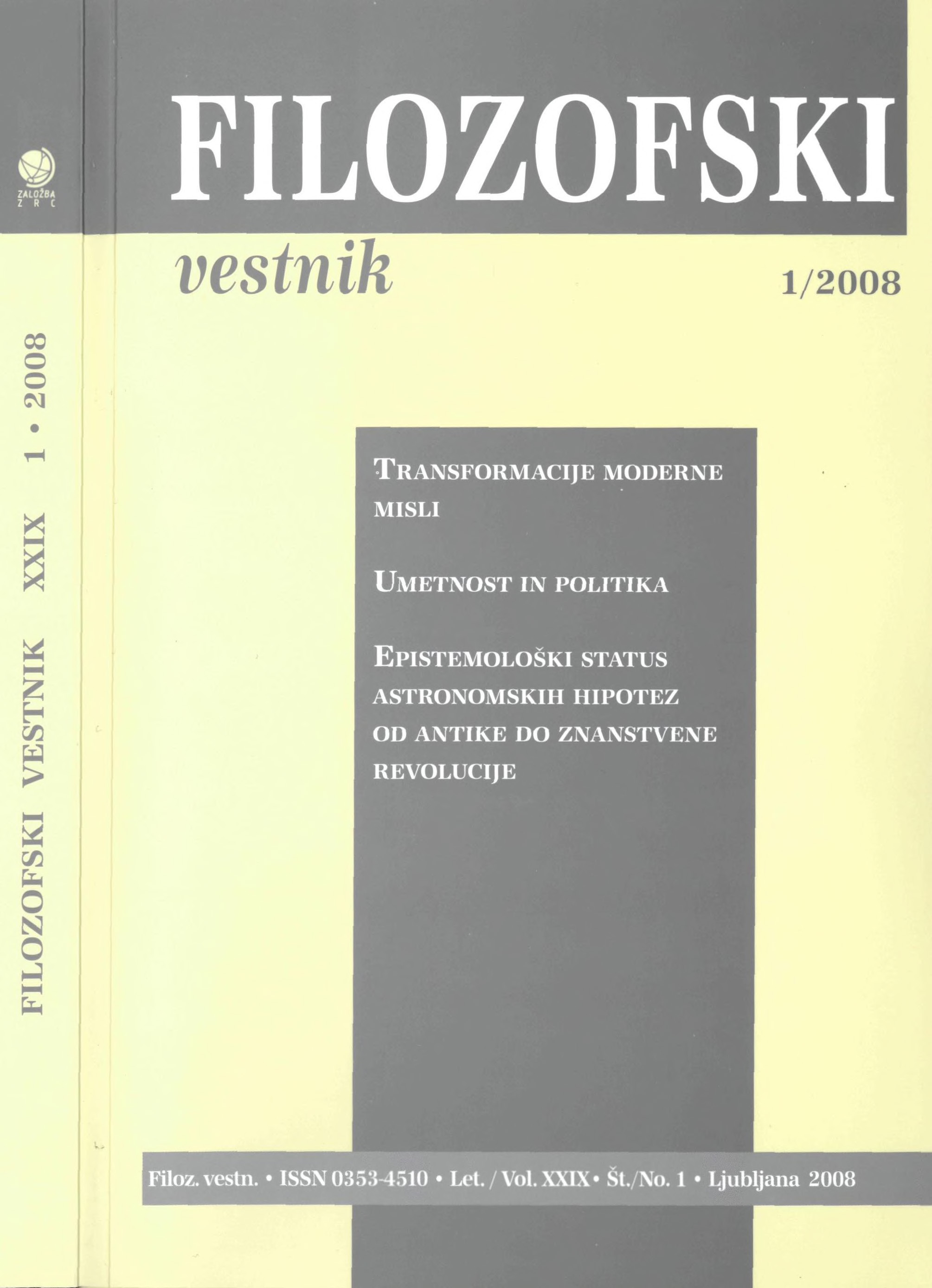Ob Deleuzovem pojmovanju kvazi-vzroka
Ključne besede:
kvazi-vzrok, smisel, dogodek, Lacan, falos, objet petit aPovzetek
Prispevek se ukvarja z umestitvijo pojmovanja kvazi-vzroka najprej znotraj Deleuzovega opusa, skozi Deleuzovi interpretacije Huma in Kanta, nato prikaže njegovo vlogo v Logiki smisla in ga poveže z Lacanovim razlikovanjem med vzrokom in zakonom. Deleuza pri kvazi-vzroku zanima dvojna vzročnost, zanima ga tisto, kar ni zvedljivo na dve heterogeni mnoštvi, in, kar ju od znotraj cepi na način nepredvidljivosti in nekalkulabilnosti. Po tej plati je mogoče najti številne vzporednice z izvirnim Freudovim odkritjem nezavednega, zlasti še, kar zadeva delo sanj, spodrsljaja in vica. Deleuzov obrat stran od psihoanalize v Anti-Ojdipu po eni strani posploši obrazec, ki ga je vpeljal kvazi-vzrok, tega izenači z delovanjem kapitala, gospostva in aparata države, njegovo vlogo dodeli konceptom postajanja in kaosa, vse to pa naj bi ohranilo tisto, za kar po Deleuzu domnevno gre v Lacanovem objet petit a.Prenosi
Podatki o prenosih še niso na voljo.
Prenosi
Objavljeno
2016-03-05
Kako citirati
Klepec, P. (2016). Ob Deleuzovem pojmovanju kvazi-vzroka. Filozofski Vestnik, 29(1). Pridobljeno od https://ojs.zrc-sazu.si/filozofski-vestnik/article/view/4412
Številka
Rubrike
Transformacije moderne misli
Licenca
Avtorji jamčijo, da je delo njihova avtorska stvaritev, da v njem niso kršene avtorske pravice tretjih oseb ali kake druge pravice. V primeru zahtevkov tretjih oseb se avtorji zavezujejo, da bodo varovali interese založnika ter da bodo povrnili morebitno škodo.
Podrobneje v rubriki: Prispevki





